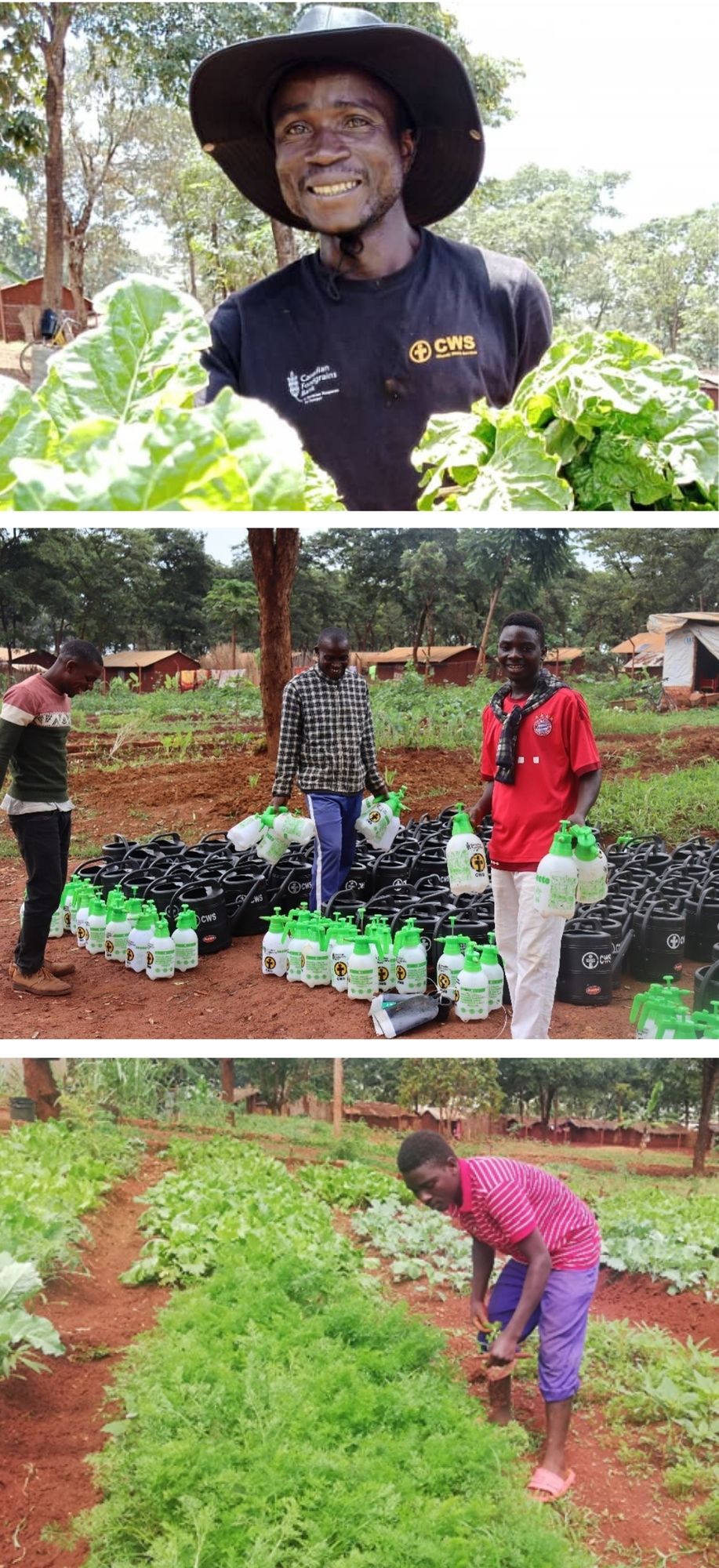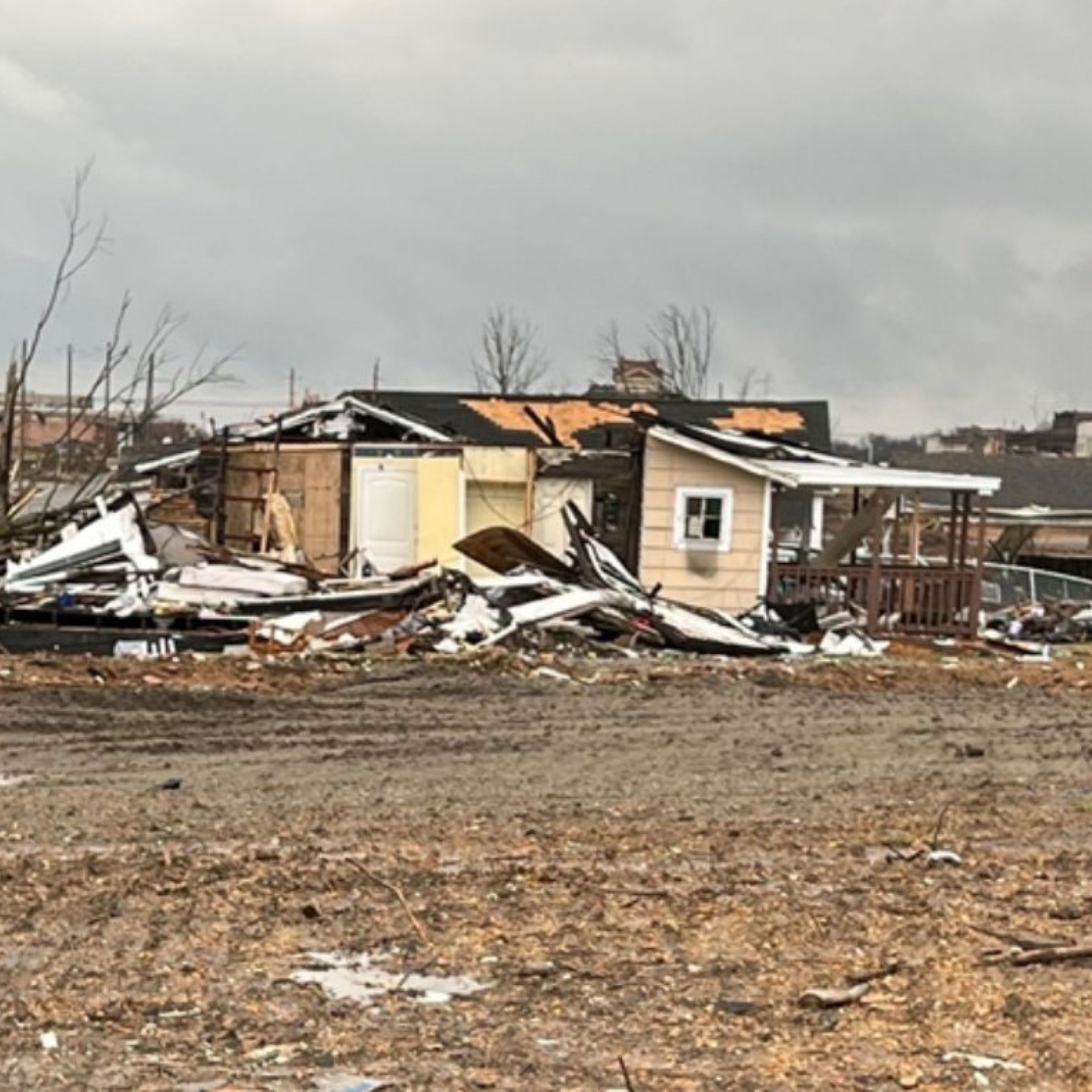Scroll through the slides to see our Refugee Hub in action Our childhood years are a time for learning, growing, making friends and forming happy memories that will last us a lifetime. When war happens, however, all of this is disrupted. Children are forced to abandon their studies, their friends and the only life they have ever known. As their …
Stories of Change

Top: Joseph holds cabbage he grew on the Vegetable farm. Middle: Joseph (right), and fellow program participants Wilondja and Simon. Bottom: Joseph removing grasses/weeds on his plot
Joseph Grows Alongside His Vegetables
When we give nature care and help it grow, we often end up growing with it. This philosophy can be seen at the vegetable farm at a refugee camp in Tanzania. In this vegetable garden, refugees learn about sustainable organic vegetable farming and combat food shortages in the camp. As the program participants grow with knowledge, the plants and vegetables they care for grow with them.
With the support of our partner, Canadian Food Grains Bank, our vegetable farming program provides training on vegetable production, nutrition and marketing techniques of farm products for refugees living at Nyarugusu Refugee Camp. So far we have reached 810 refugees and their households, totaling about 4,050 individuals.
Moize Munenwa Joseph, 22, spends most of his day under the sun, tending to the vegetable garden. Joseph, who came from Congo as a refugee, had little knowledge about sustainable farming before coming to Tanzania. He told us, “I never looked at agriculture as a very important activity. After I joined the CWS agricultural project, I came to realize that agriculture can be more useful and more helpful in supporting my family than the other work that I have been engaged in before. Through farming, I managed to harvest amaranths, Chinese cabbage and onions, some of which we have used at home and the rest we sold to my neighbors. I recently earned almost $6.50 from the sale of vegetables, which I used to buy stationery for my younger brother who is in school.”
Since joining the program, Joseph has participated in various agriculture training courses which have allowed him to discover better vegetable farming methods. He shares, “at home, we used to grow some vegetables but the insects were destroying the plants so we could not earn enough for the family. Thanks to CWS, however, soon after I joined this project, I was trained on Integrated Pest Management and other local methods, including farm cleanliness, to overcome pests and seed selection to improve the yield. This has greatly improved the yield on my farm.”
As an active and dedicated program participant, Joseph was selected as one of the program’s lead farmers and helps train and educate the other program participants. He stated, “I’m very happy that people trusted and selected me to be their lead farmer. Through this role, I get to know/understand people and address their needs whenever they arise. CWS has imparted me with different skills not only in leadership but also in group dynamics, gender-related issues and nutritional knowledge about how to prepare a balanced meal.”
Before joining the program, Joseph relied on intense and laborious jobs such as carrying luggage to help feed his family of eight. Now he is able to partake in an enjoyable activity that yields both food and a stable income. “With CWS I have found agricultural work to be very simple and does not require much energy. Through this activity, I can still take care of my family and ensure we consume healthy food,” he says. Joseph is an inspiration and a true leader in the community and continues to help others learn and grow through the Vegetable Farming Project.








